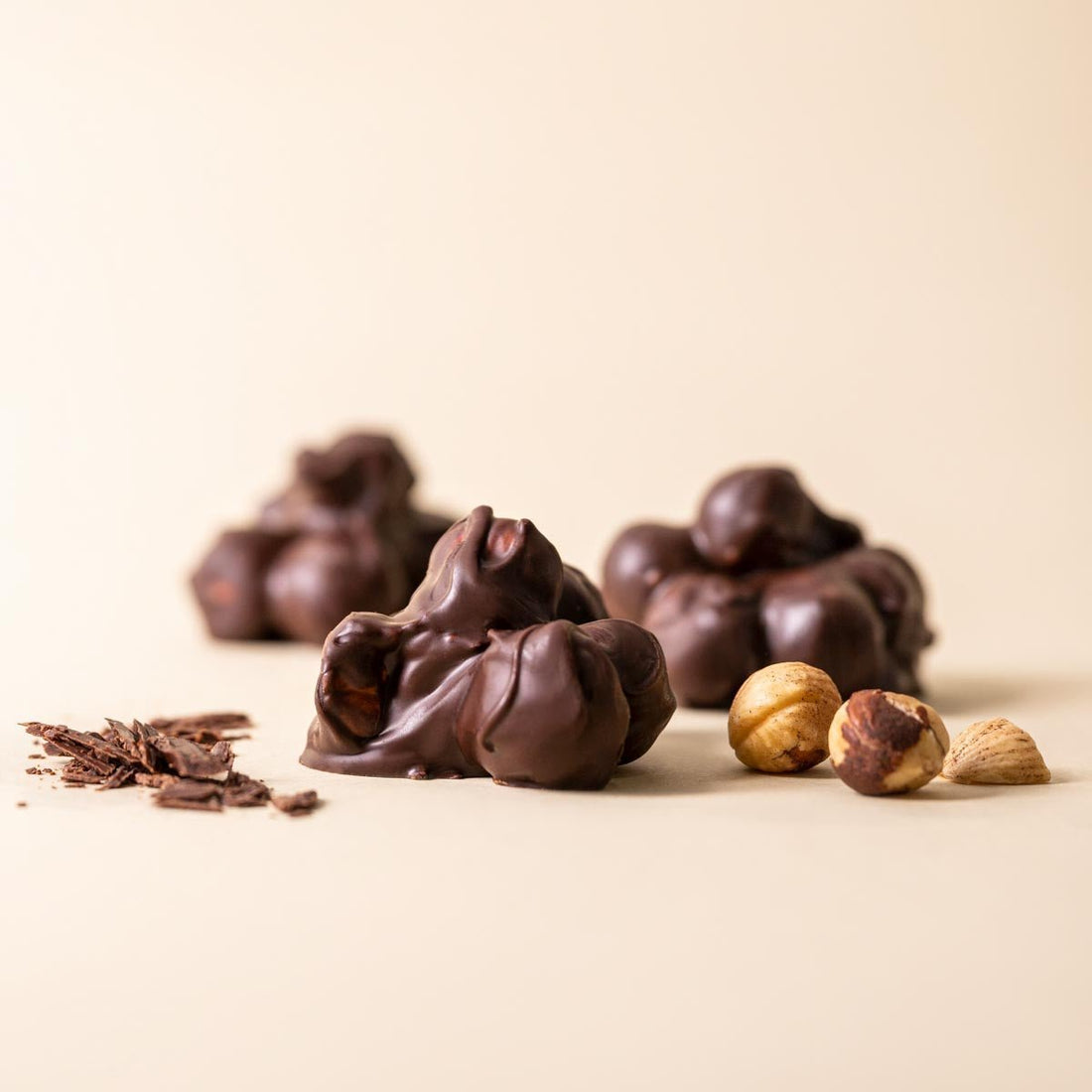Does chocolate prevent disease?
Bombonería PonsChocolate and Health: What Does Science Say?
For centuries, chocolate has been revered for its taste and, more recently, for its possible health effects. But can chocolate really prevent diseases? As science progresses, different studies suggest that certain types of chocolate—especially those with a high cocoa content—could play a beneficial role in cardiovascular health, mood, and even cellular aging prevention. In this article, we explore what scientific evidence says about healthy chocolate, its active compounds, and how to intelligently integrate it into a balanced diet.
Cocoa as a Source of Antioxidants
The key component of chocolate with nutritional benefits is cocoa. Particularly in its purest form, cocoa contains a high concentration of antioxidants, especially flavonoids. These bioactive compounds have been the subject of multiple studies for their ability to neutralize free radicals, which could help reduce cellular damage related to aging and some chronic diseases.
A study from the Harvard T.H. Chan School of Public Health found that cocoa flavonoids can improve blood circulation and reduce blood pressure in healthy adults. This is due to their ability to stimulate the production of nitric oxide, which dilates blood vessels and improves blood flow.
Impact on Cardiovascular Health
The relationship between chocolate and cardiovascular health has been widely studied. The European Food Safety Authority (EFSA) has recognized that consuming 200 mg of cocoa flavanols per day can help maintain the elasticity of blood vessels, a key factor for good heart health.
This benefit is only achieved with chocolate that has a high cocoa content, such as 85% dark chocolate, since milk or sweetened chocolates contain fewer flavonoids and more added fats and sugars.
Functional Chocolate: More Than Just Pleasure
What Is Functional Chocolate?
The term functional chocolate refers to products made with high-quality cocoa that are enriched or formulated to enhance their beneficial properties. They usually have low sugar content and high cocoa levels, such as bean-to-bar tablets, which are produced directly from the bean to the bar, better preserving their nutrients.
Low-Sugar Chocolate and Its Role in a Diet
One of the greatest challenges in consuming chocolate is its sugar content. However, there are alternatives like low-sugar chocolate that retain the benefits of cocoa without negatively affecting blood glucose levels. These products are ideal for those seeking to take care of their metabolic health without giving up the pleasure of chocolate.
Vegan Chocolate: An Ethical and Healthy Option
Vegan chocolate removes animal-derived ingredients such as milk, which reduces the presence of added saturated fats. Furthermore, it is often made with purer cocoa, making it a healthy and environmentally friendly option.
Benefits of Dark Chocolate for Well‑Being
Effects on Mood
Beyond physical benefits, chocolate also has positive effects on mood. Studies indicate that moderate consumption of dark chocolate can stimulate the production of serotonin and endorphins, neurotransmitters associated with emotional well‑being.
A small study published in the Journal of Psychopharmacology showed that a daily dose of dark chocolate over two weeks improved anxiety levels in healthy subjects. Although these results are not conclusive, they reinforce the perception that chocolate can be more than just a treat.
A Friend to the Brain and Memory
Some preliminary research also suggests that cocoa flavonoids may have a positive effect on cognitive function. These compounds appear to improve cerebral circulation and, thereby, the function of certain areas related to memory and attention. Although more evidence is needed, nutritionists and neurologists agree that including dark chocolate in the diet can be beneficial, especially for older adults.
What Type of Chocolate Should You Choose for Health?
Key Points to Identify a Healthy Chocolate
For chocolate to have a potentially beneficial effect, it must meet certain characteristics:
- Contain at least 70% cocoa (ideally 85%)
- Be low in added sugars
- Not contain vegetable oils or hydrogenated fats
- Preferably be made with organic or fair trade ingredients
An excellent option for those seeking sophistication and health is to opt for high-quality dark chocolates, which combine intense flavor with the benefits of pure cocoa.
Consumption Recommendations
Experts recommend consuming between 10 and 30 grams per day of dark chocolate with a high cocoa content. This amount allows you to take advantage of its benefits without exceeding calorie or saturated fat intake.
Conclusion: Can Chocolate Prevent Diseases?
Healthy chocolate, especially dark chocolate with a high percentage of cocoa, can contribute to overall well‑being if consumed in moderation. Scientific studies support its antioxidant effects, positive impact on circulation, and ability to improve mood.
However, it is important to remember that chocolate is not a medication or a miracle cure. Its inclusion in the diet should be part of a balanced lifestyle. Choosing functional and low‑sugar chocolates is key to getting the best out of this ancestral food without compromising health.
Frequently Asked Questions about Chocolate and Health
What type of chocolate is most beneficial for health?
Dark chocolate with at least 70% cocoa, preferably 85%, is the most beneficial. It contains more antioxidants and fewer sugars than milk or white chocolate. Bean-to‑bar products are ideal because they better preserve cocoa’s nutrients.
Can I eat chocolate every day?
Yes, in moderate amounts. It is recommended to consume between 10 and 30 grams daily of high-cocoa dark chocolate. It is important that it is low‑sugar chocolate without artificial additives to avoid negative effects.
Does chocolate help with blood pressure?
Studies such as those from Harvard indicate that cocoa flavonoids can improve vascular elasticity and reduce blood pressure in certain individuals. However, it should not replace medical treatments—it’s a complement, not a therapy.
Can chocolate improve mood?
Dark chocolate can stimulate the production of endorphins and serotonin, neurotransmitters related to well-being. That is why many people associate it with feelings of pleasure and relaxation. When consumed in moderation, it can be an emotional ally.





